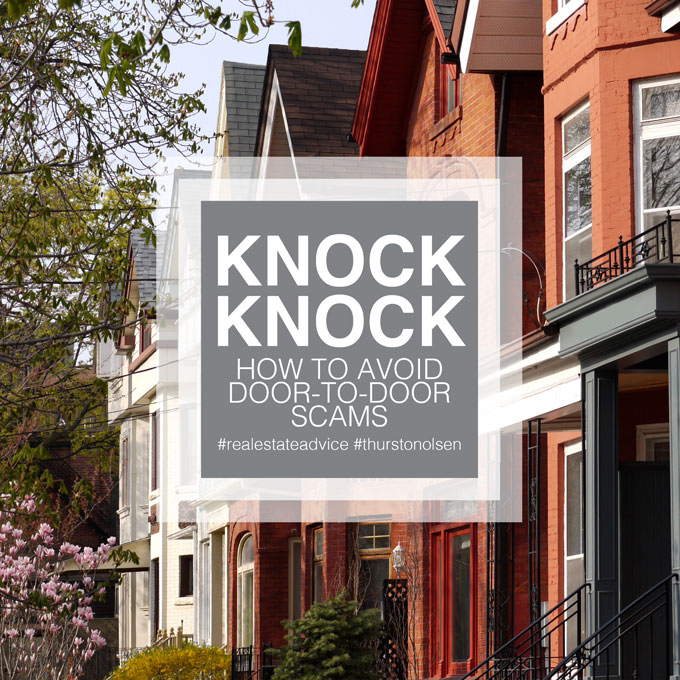
It’s early in the evening and there’s a knock on the door. You answer and are greeted by an official-looking man who claims he needs to see your utility bill to confirm you’re getting your energy rebate.
Do you let him in?
While he may be legitimate, he may also be using deception to sell you something you don’t want. Here are some suggestions for finding out:
• Ask for a business card. Then, check if it has an address, phone
number and website. If the salesperson refuses or just shows you his
ID card (which anyone can fake), that’s a red flag.
• Ask for the name of his employer. Sometimes salespeople will say
they “represent the phone company”. That doesn’t mean they
actually work for it.
• Ask if you can call his company to confirm details before buying. If he
refuses, or says the office is closed, shut the door.
• Ask if you can consider the offer and call the office the next day to
place your order.
• If you’re really suspicious, ask him to come back later. Then, call the
non-emergency police number. Police are aware of common scams
in the area.
Most importantly, use your common sense. Door-to-door salespeople can
be pretty persuasive, but if something doesn’t seem right to you, trust your
gut. Say, “No thanks.”
Of course, if everything checks out with the salesperson, and the offer is a
good one, consider taking advantage of it.

It’s early in the evening and there’s a knock on the door. You answer and are greeted by an official-looking man who claims he needs to see your utility bill to confirm you’re getting your energy rebate.
Do you let him in?
While he may be legitimate, he may also be using deception to sell you something you don’t want. Here are some suggestions for finding out:
• Ask for a business card. Then, check if it has an address, phone
number and website. If the salesperson refuses or just shows you his
ID card (which anyone can fake), that’s a red flag.
• Ask for the name of his employer. Sometimes salespeople will say
they “represent the phone company”. That doesn’t mean they
actually work for it.
• Ask if you can call his company to confirm details before buying. If he
refuses, or says the office is closed, shut the door.
• Ask if you can consider the offer and call the office the next day to
place your order.
• If you’re really suspicious, ask him to come back later. Then, call the
non-emergency police number. Police are aware of common scams
in the area.
Most importantly, use your common sense. Door-to-door salespeople can
be pretty persuasive, but if something doesn’t seem right to you, trust your
gut. Say, “No thanks.”
Of course, if everything checks out with the salesperson, and the offer is a
good one, consider taking advantage of it.

